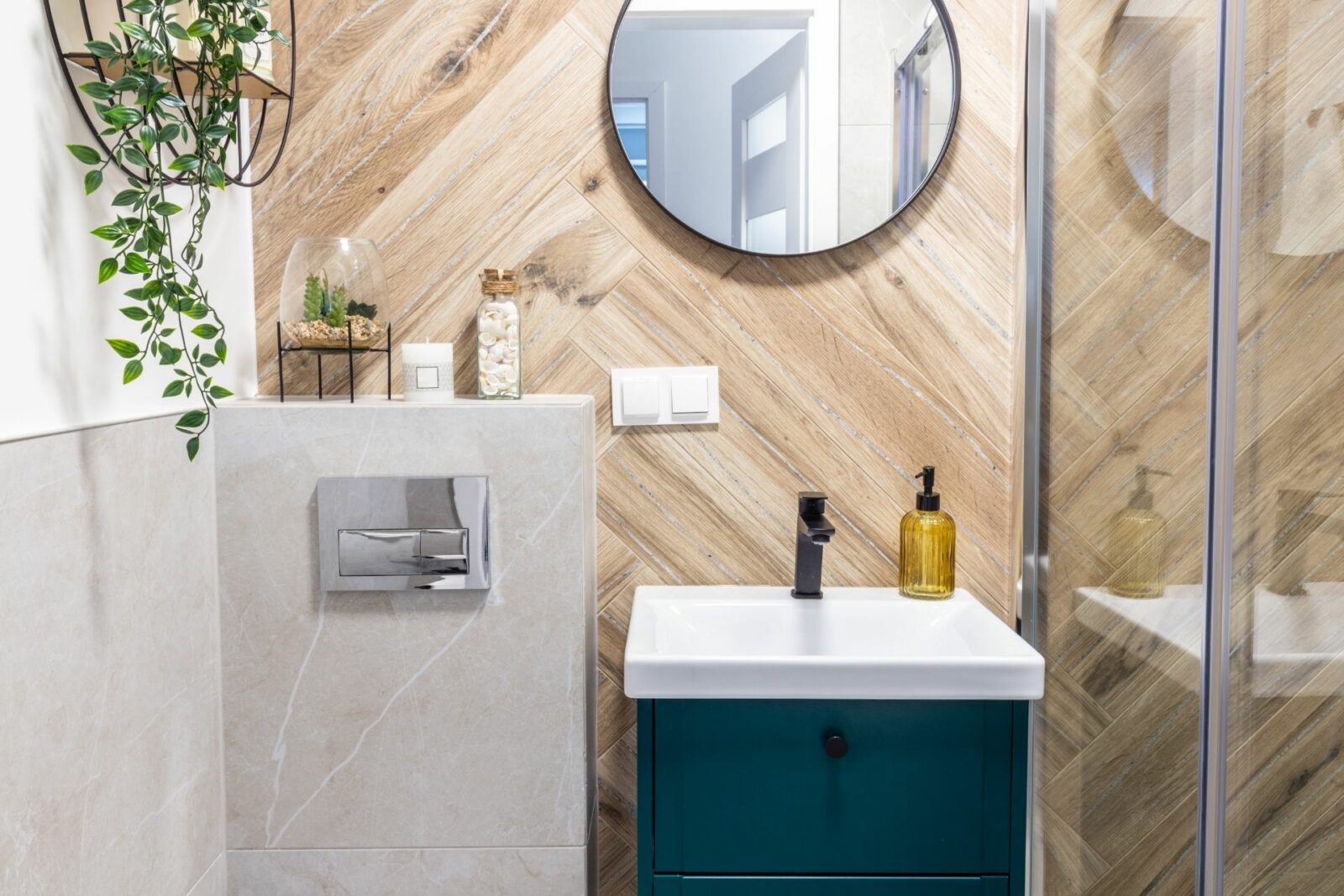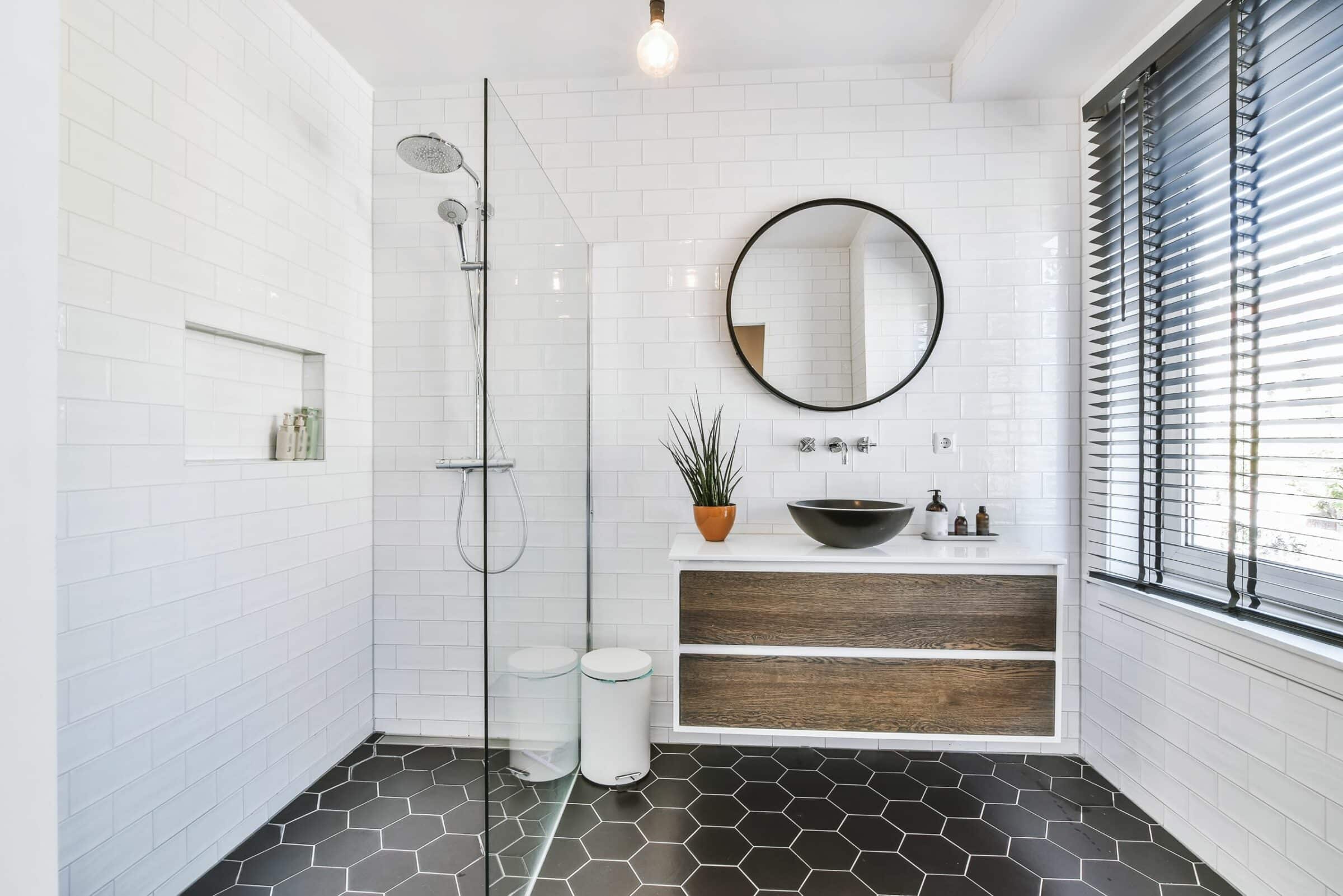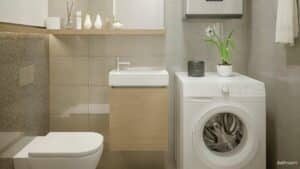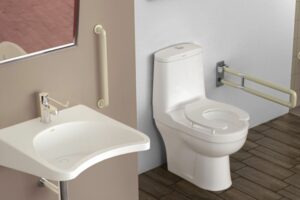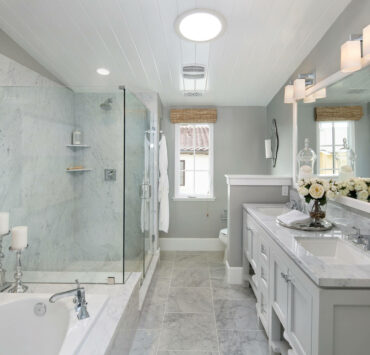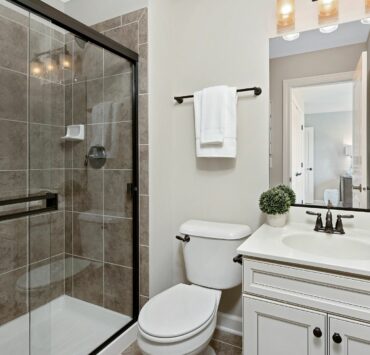In today’s city living, where space is at a premium, the real test is making small areas feel welcoming and useful. This year, small bathrooms are getting a lot of attention, showing us how much you can do with limited space. It’s not just about squeezing everything into a tiny bathroom; it’s about making everything look good and work well together. Let’s explore some of the cleverest small bathroom layout ideas that are turning tight spaces into little luxuries in 2024.
Crafting Compact Sanctuaries: Small Bathroom Layout Ideas in 2024
1. Vertical Storage Solutions:
- The Why: Making the best use of vertical space means making use of potential storage areas that would otherwise be wasted. Especially in a small bathroom, the height of a room often offers untapped potential.
- The How: Consider tall, narrow cabinets or stackable floating shelves. Pegboards, too, can be an innovative addition, letting you hang baskets, shelves, or hooks according to your needs. Corner shelves can be especially effective, using spaces that are often overlooked.
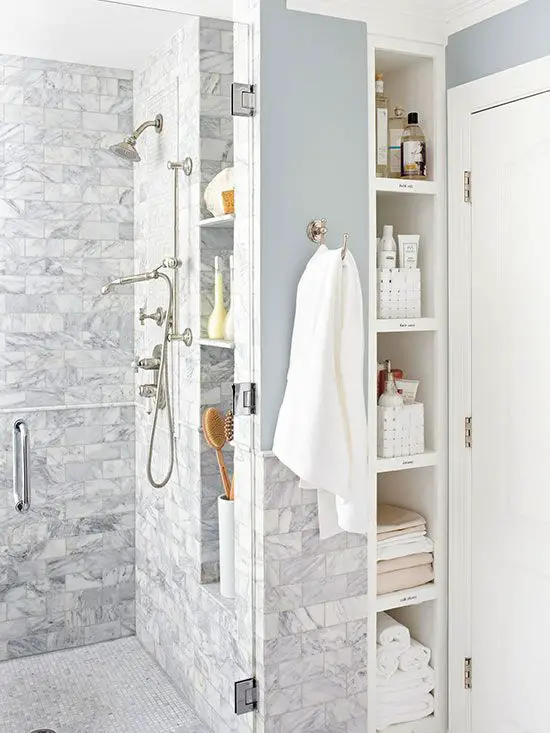
2. Floating Vanities and Fixtures:
- The Why: Showing more floor space can psychologically make a room feel bigger than it is.
- The How: When selecting vanities, opt for designs that are wall-mounted. The space underneath can also provide room for small items or baskets. Likewise, wall-mounted sinks, particularly those without vanity storage beneath, can emphasize floor space and impart a minimalist aesthetic.
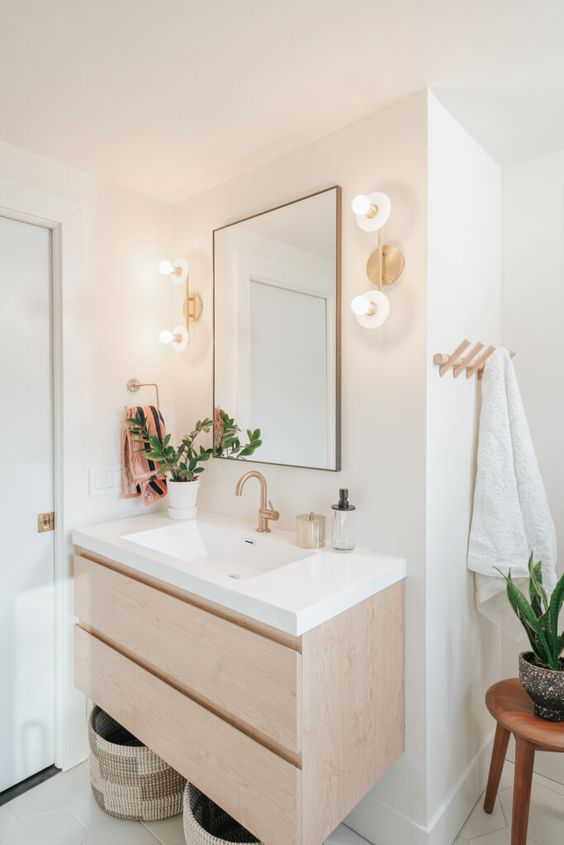
3. Frameless Shower Doors:
- The Why: Bulky frames can make a space feel confined. Eliminating them provides a seamless and expansive look.
- The How: Go for clear glass partitions or enclosures for your shower. Using a continuous floor material from the main bathroom area into the shower can further unify the space.
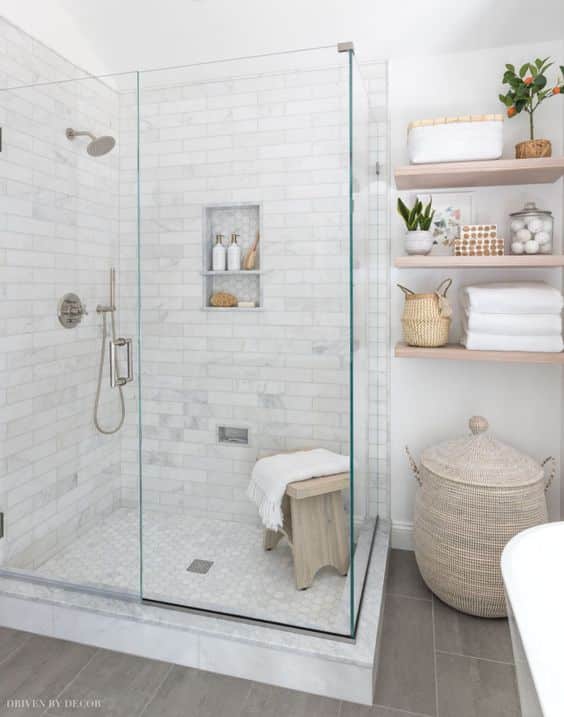
4. Use of Mirrors:
- The Why: Mirrors reflect light, thereby doubling up on brightness and visual space.
- The How: Apart from the main vanity mirror, consider full-length mirrors or mirrored backsplashes. Mirrored cabinet fronts can be both functional and expansive.
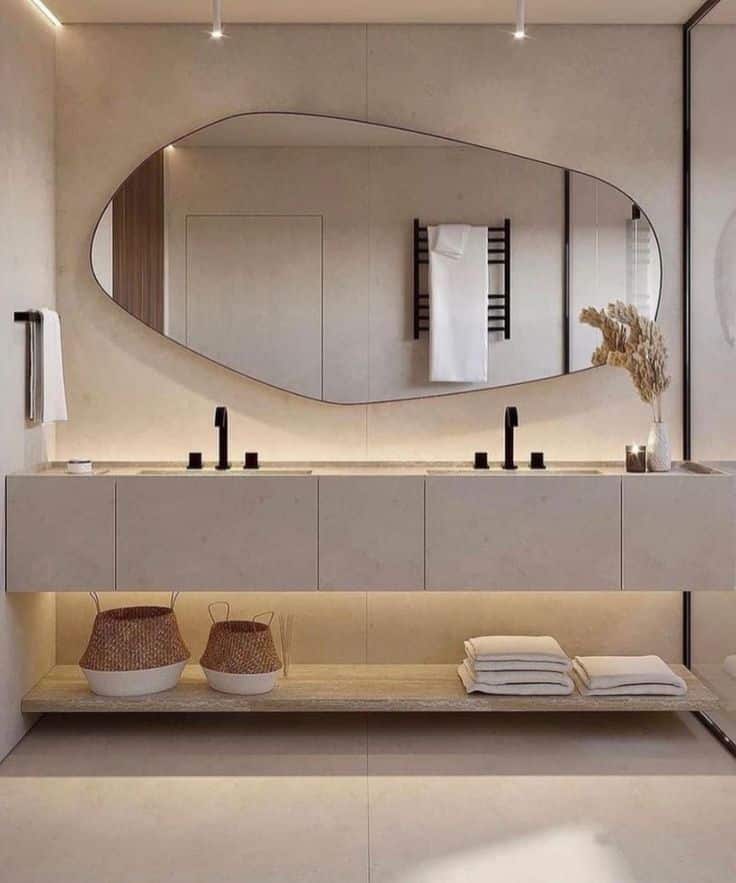
5. Multifunctional Units:
- The Why: Maximizing functionality means fewer items take up space.
- The How: A vanity with pull-out steps for kids, a shower with built-in niches for toiletries, or modular units that incorporate storage in unused spaces can be game-changers.
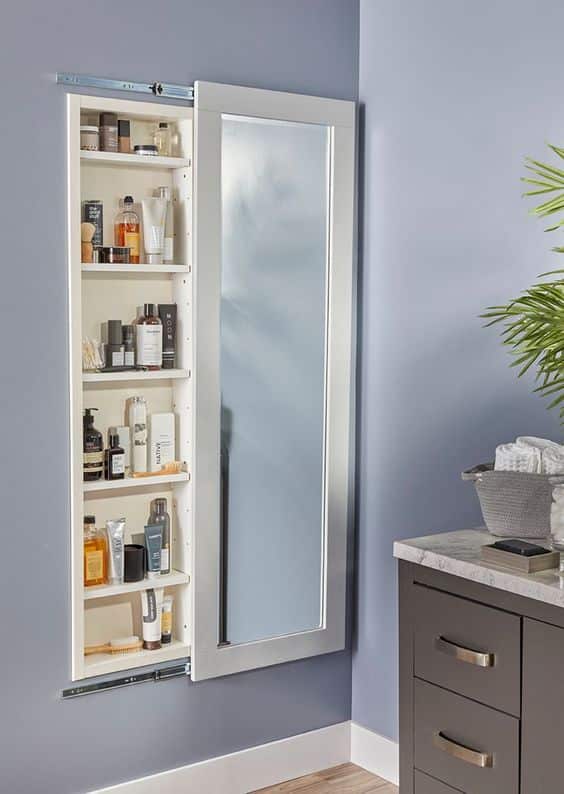
6. Pocket and Sliding Doors:
- The Why: Traditional doors take up square footage when opened. Eliminating that swing radius can reclaim space.
- The How: Where possible, install pocket doors that slide into the wall. If not feasible, barn-style sliding doors can be both stylish and space-saving.
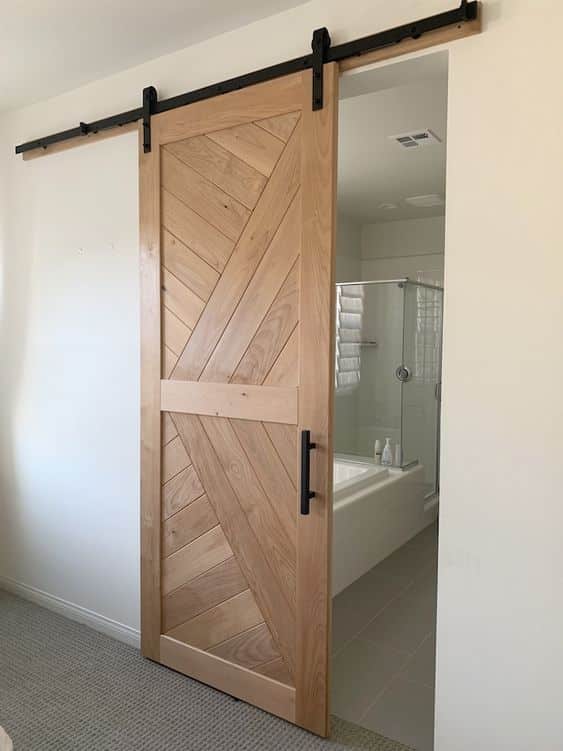
7. Tile Patterns and Colors:
- The Why: The right patterns can draw the eye vertically or extend the space visually.
- The How: Use vertical subway tiles, chevron patterns, or herringbone layouts to draw the eye upwards. Light colors, especially whites and pastels, can also make a space feel larger.
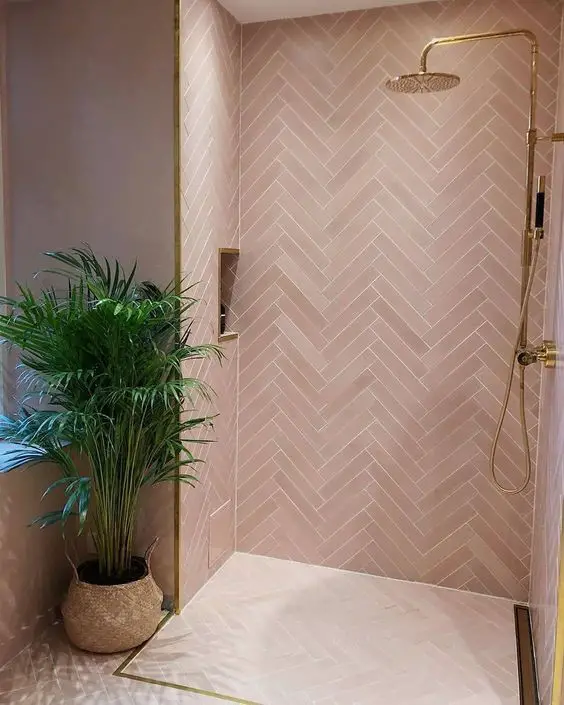
8. Wall-mounted Toilets:
- The Why: Like floating vanities, these toilets free up visible floor space.
- The How: Choose compact designs with concealed tanks. Ensure you have strong wall support for installation.
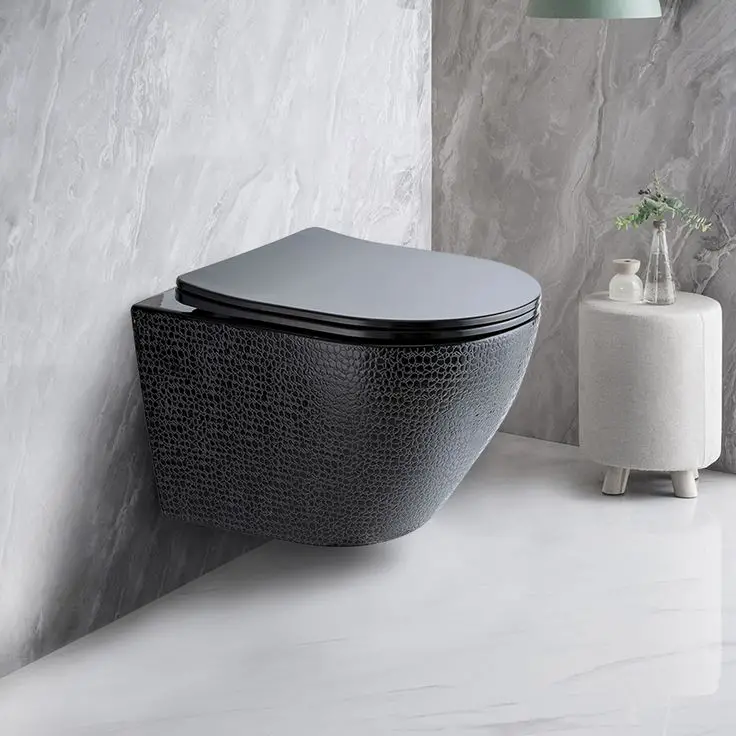
9. Open Shelving:
- The Why: Closed cabinets can seem bulky in a small space.
- The How: Opt for slender, open shelves where you can display neatly folded towels, decorative baskets, or other aesthetically pleasing toiletries.
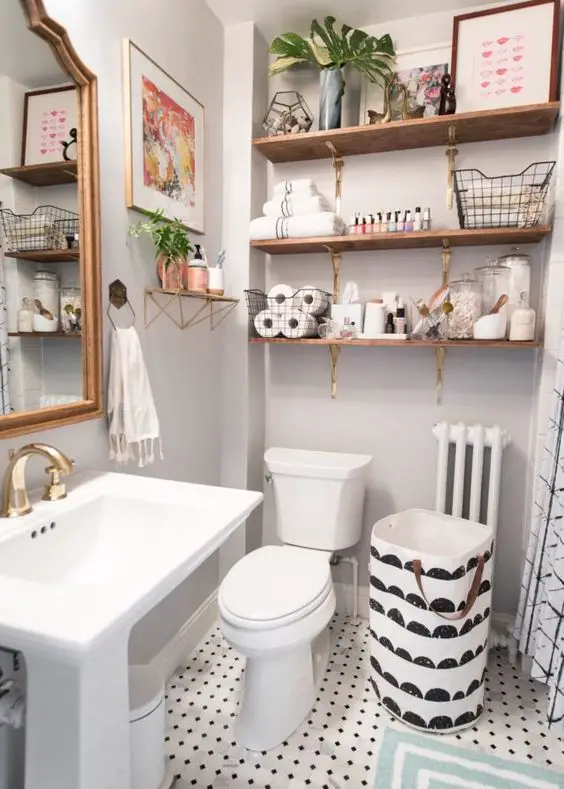
10. Hidden Storage:
- The Why: Clutter can make a room feel smaller. Hidden storage options maintain a streamlined appearance.
- The How: Use pull-out drawers under sinks, built-in niches in showers, or even install a recessed medicine cabinet in the wall.
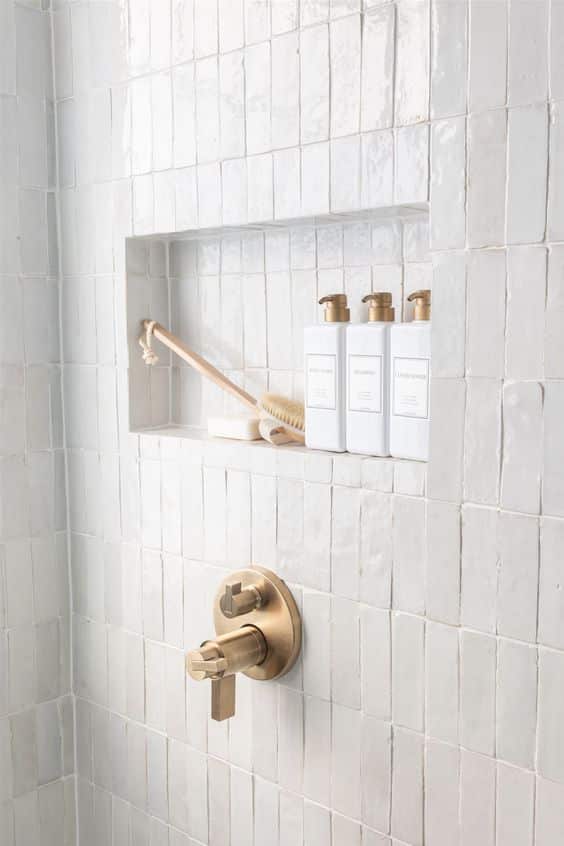
11. Smart Technology Integration:
- The Why: Modern tech often comes in sleeker designs and offers superior functionality.
- The How: Integrate touchless faucets, smart mirrors that can display the time or weather, or even voice-controlled lighting.
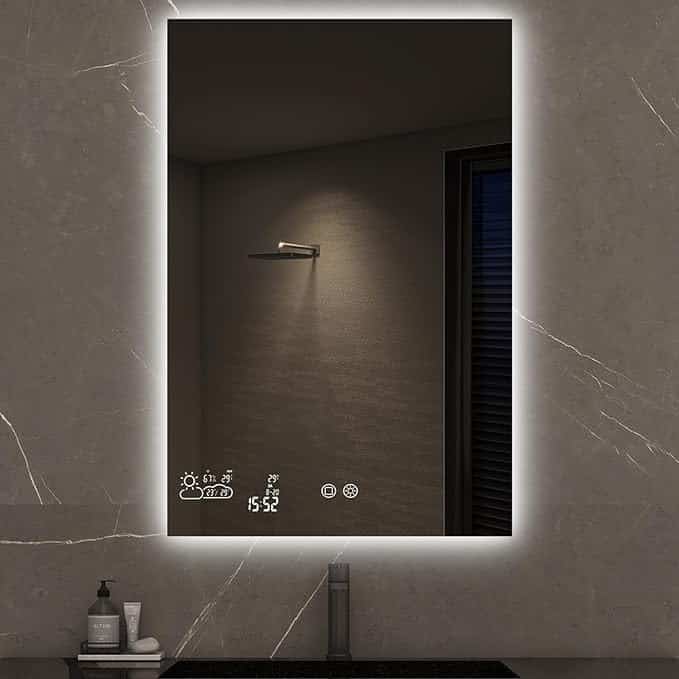
12. Using Clear Materials:
- The Why: Transparent items take up less visual space, making the room feel uncluttered.
- The How: Use Lucite, glass, or acrylic for items like towel bars, soap dishes, or storage containers.
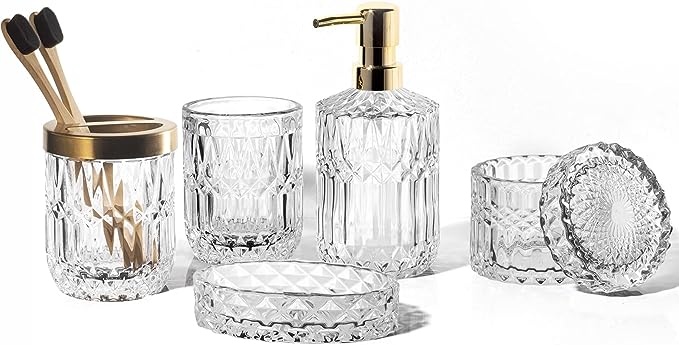
13. Compact and Multifunctional Bathtubs:
- The Why: Not everyone wants to forfeit a tub, but space can be a constraint.
- The How: Consider Japanese soaking tubs, which are deeper and have a smaller footprint, or tubs with built-in storage ledges.
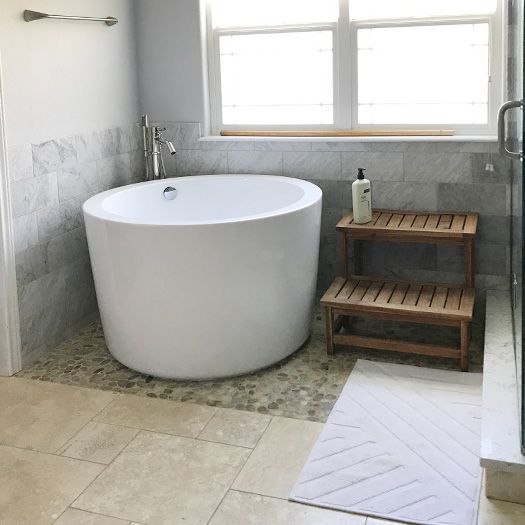
14. Lighting Strategies:
- The Why: Proper lighting can eliminate dark corners and make a room feel open and airy.
- The How: Layer your lighting with overhead lights, wall sconces, and even under-cabinet lighting. Consider installing a dimmer for mood adjustments.
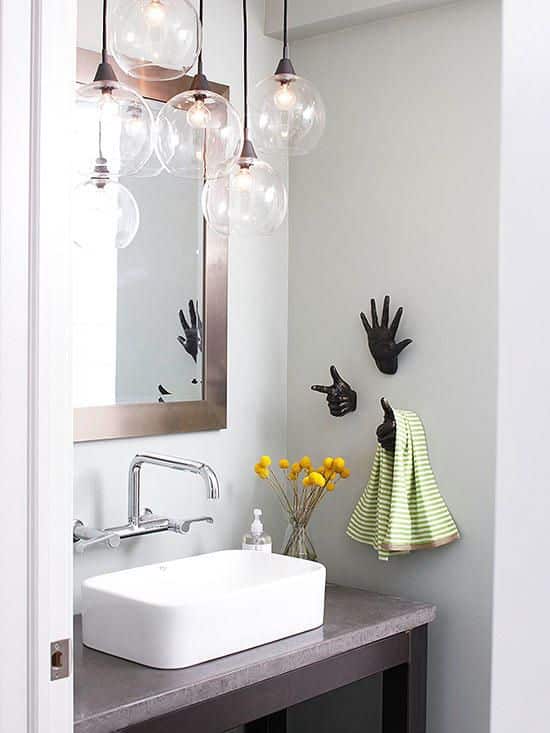
15. Natural Elements:
- The Why: They bring a touch of the outdoors inside, lending a sense of expanded space.
- The How: Incorporate wooden accents, natural stone tiles, or potted plants that thrive in humid environments like ferns or aloe vera.
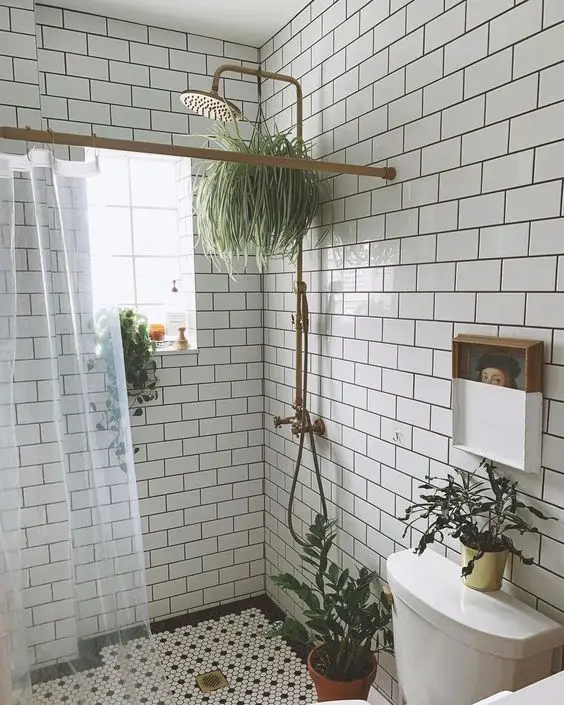
The Best Small Bathroom Ideas
Now that you know how to make the best out of your small space, check out some of the best small bathroom ideas to spark your imagination.
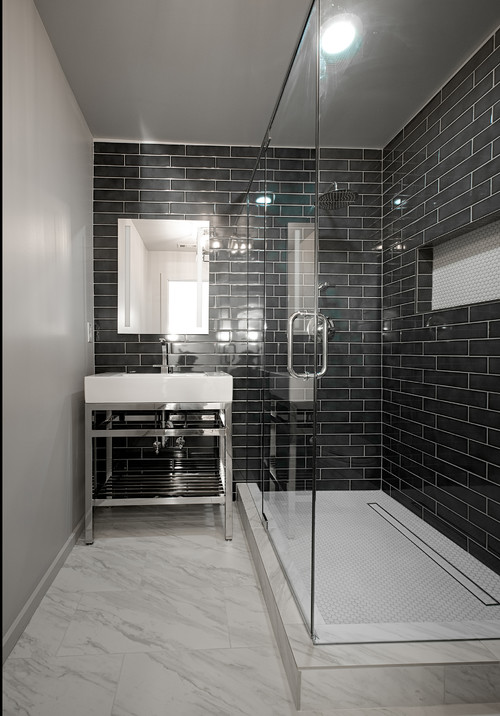
A small bathroom layout idea with dark tiling on walls and marble flooring.
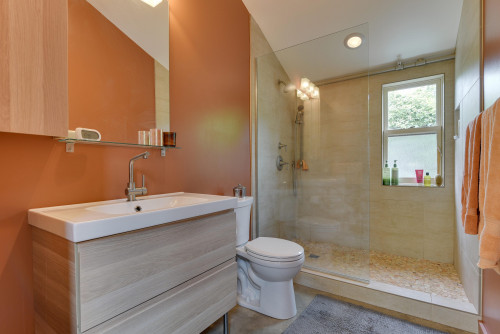
Remodeling a small bathroom? Here’s a vibrant small bathroom idea with two piece toilet, console sink, and light wood cabinets.
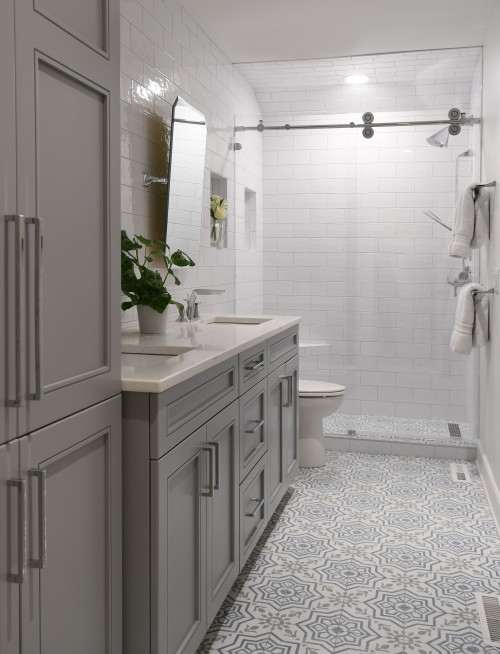
A classic example of a small bathroom with an elongated layout. A sliding shower door is a great space-saving feature here.
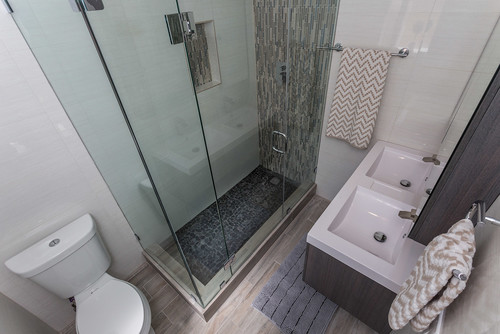
A small bathroom housing contemporary-style decor.
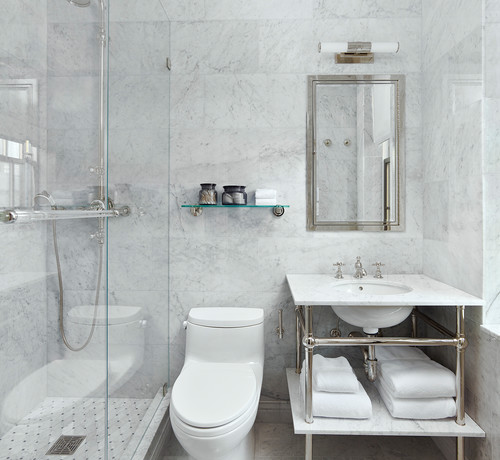
Small yet chic, this bathroom exudes absolute classiness with each feature.
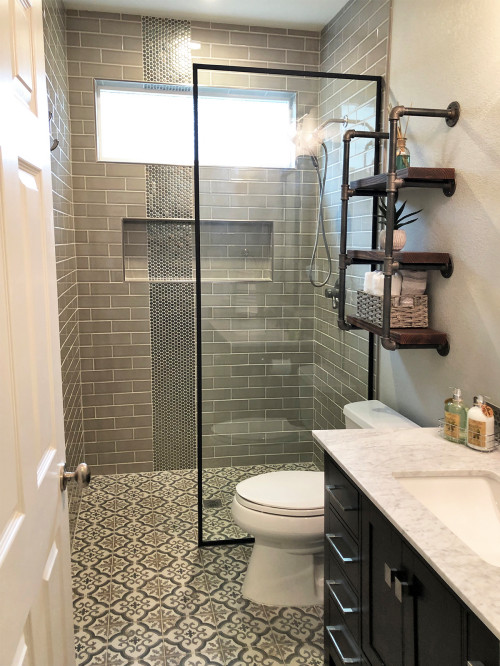
A modern small bathroom design with industrial accents.
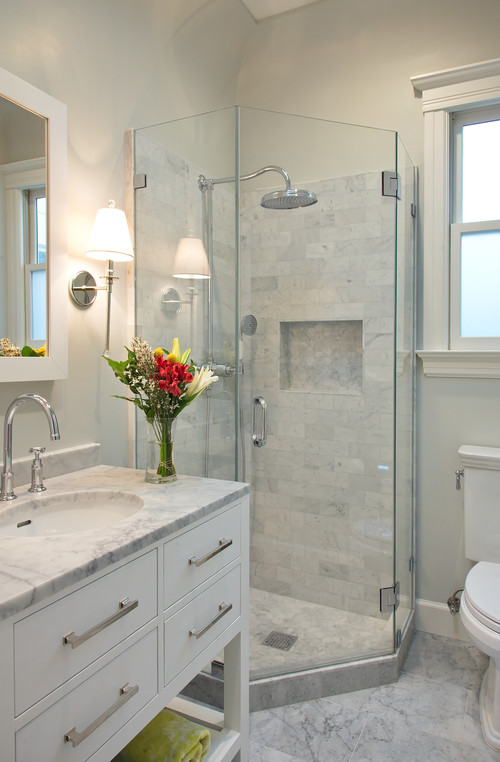
This bathroom maximizes every inch of space by incorporating smart design solutions like the corner shower.
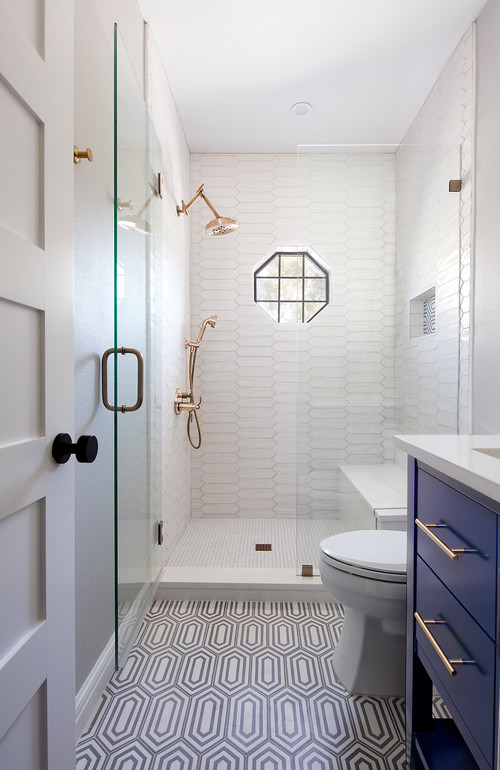
A small transitional bathroom in a white and blue color theme and industrial hardware.
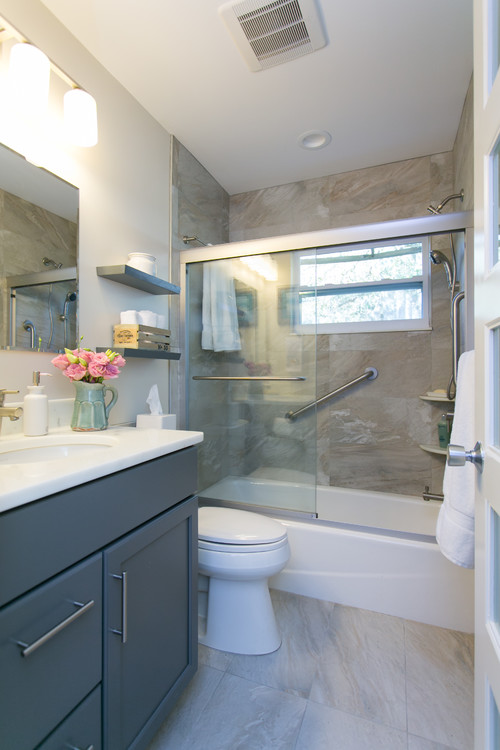
Who says you need to miss out on having a tub due to having a small space? Here’s how you can smartly incorporate it.
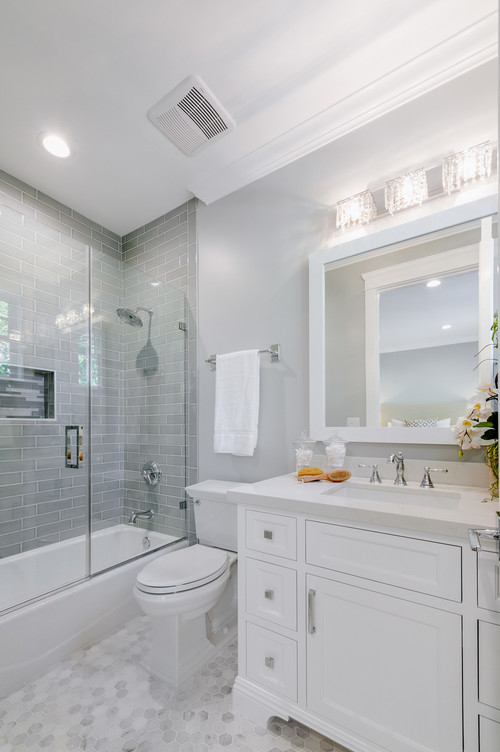
A small transitional bathroom in an all-white theme.
Frequently Asked Questions
What are the best storage solutions for small bathrooms?
To make the most of limited space, consider vertical storage options like tall cabinets, floating shelves, and corner units. Pegboards with hooks or baskets can also be useful for organizing smaller items while keeping the floor clear.
How can I make my small bathroom feel bigger?
Using light colors, installing large mirrors, and opting for frameless shower doors can visually expand a small bathroom. Wall-mounted fixtures like toilets and vanities also create more visible floor space, making the room feel more open.
Is it possible to have a bathtub in a small bathroom?
Yes! Compact options like Japanese soaking tubs, which are deeper but take up less floor space, can be a great solution. Bathtubs with built-in storage or multifunctional ledges also maximize functionality without crowding the room.
What are some lighting options that work well in small bathrooms?
Good lighting can really open up a small bathroom and make it feel cozy and inviting! Try layering different types of lights for the best effect: recessed ceiling lights can brighten the whole space, wall sconces on either side of the mirror add focused lighting where you need it, and LED strips under a floating vanity bring a soft, calming glow. Dimmable lights are a great touch, too, so you can easily adjust the vibe to suit your mood without overwhelming the room.
What colors work best for making a small bathroom feel bigger?
Light and neutral colors are your best friends for opening up a small bathroom. Shades like white, soft gray, and pastels reflect light and help make the space feel roomier. If you’re into a bit of contrast, try adding an accent wall with a slightly darker shade or a subtle pattern. Glossy finishes on tiles and fixtures can also bounce light around, giving the room an even more open feel.
